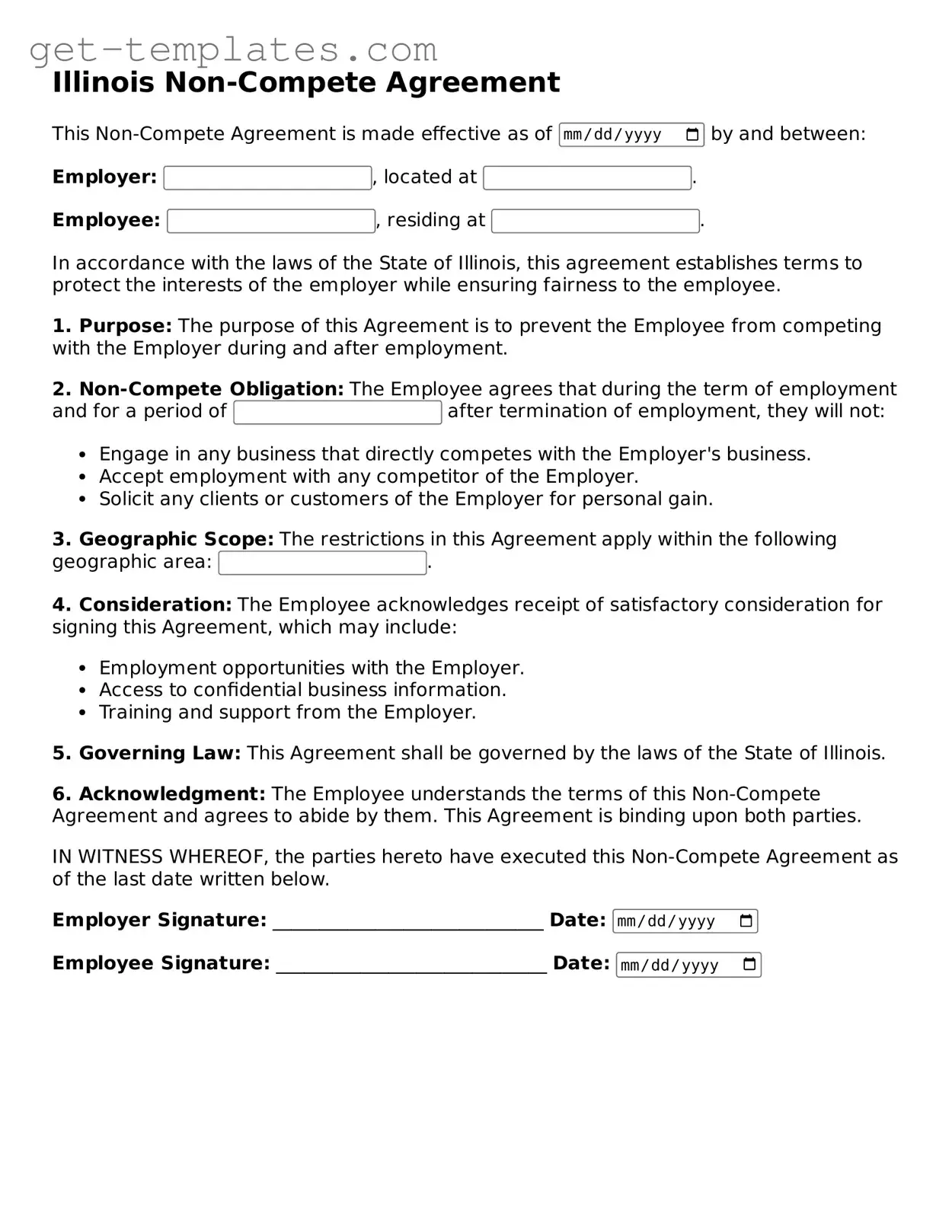Attorney-Approved Non-compete Agreement Document for Illinois
A non-compete agreement is a legal contract that restricts an employee from working for competitors or starting a similar business for a specified period after leaving a job. In Illinois, these agreements must meet certain criteria to be enforceable, balancing the interests of employers with the rights of employees. Understanding the nuances of the Illinois Non-compete Agreement form is essential for both parties involved in the employment relationship.
Get Document Online

Attorney-Approved Non-compete Agreement Document for Illinois
Get Document Online
You’re halfway through — finish the form
Finish Non-compete Agreement online — edit, save, download made easy.
Get Document Online
or
⇓ PDF Form
